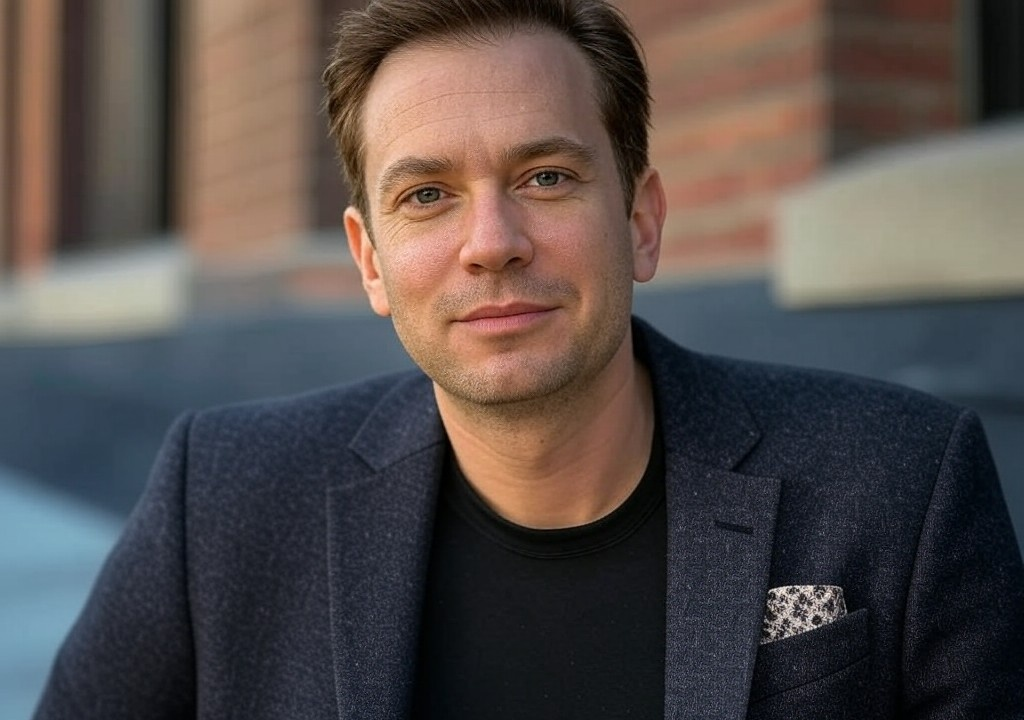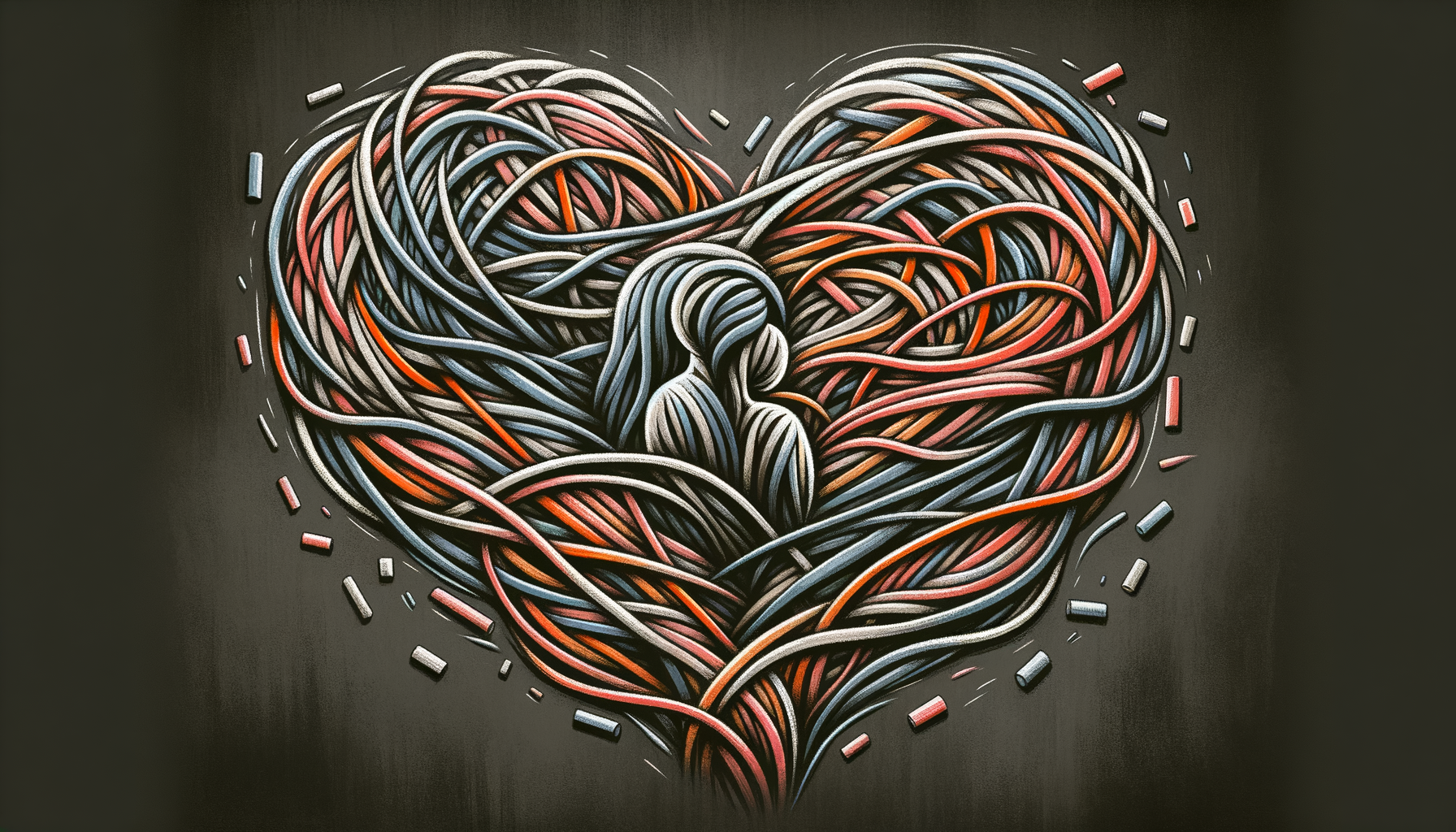When I tell you this was the hardest piece I’ve ever written, I don’t mean hard like trying to parallel park in downtown Brooklyn on a Friday night—though that also ranks pretty high on life’s personal challenge board. No, this was the kind of hard that makes your chest tight, your coffee cold, and your word count nonexistent until you’re staring down a deadline like it’s a disappointment-drenched family reunion. But let me back up and set the scene.
The Pressure to "Get It Right"
A few months ago, my editor tapped me to write about cultural identity and how it intersects with love—a bruise-blue topic stitched into years of my personal and professional life. On paper, this should have been a slam dunk. After all, I grew up with parents who would argue about whether lechon asado or brisket ranked as the ultimate celebratory meal, all while quoting James Baldwin at the dinner table. I’ve spent my career unpacking love stories from across geographies and generations. This was squarely in my wheelhouse.
But the real reason I was sweating profusely under my very well-tailored writing blazer? I was terrified of telling the truth.
I don’t mean “the truth” in some grand, capital-T way. I mean those small, deeply personal truths we cautiously edge around, like a flaming hot cup of tea we’re afraid to spill on our laps. For me, it was revisiting my first real heartbreak—an all-consuming, multilingual romance that spanned three passports and too many late-night arguments over WhatsApp. Our relationship wasn’t just complicated; it was a Sudoku puzzle coded in emotion and cultural nuance. And I wasn’t exactly eager to hold it up to the fluorescent glare of my own critique.
How do you translate matters of the heart into something coherent—let alone insightful—without sounding like a tragic indie film that only plays in underground Berlin cinemas? How do you honor your audience’s experience while grappling with your own?
I didn’t know the answers. But I knew I couldn’t dodge the question.
Writing Through the Cringe
Here’s a thing about writing: it’s a lot like dating, honestly. You’re all hopeful in the beginning, butterflies kicking up, thinking, This draft could be the ONE. But then, halfway through, you’re staring at the ugliest thing you’ve ever seen, wondering why you bother. You hate your own voice. You overthink every line. Maybe even try to ghost it for a bit, leaving your laptop unforgivably unopened next to a growing pile of laundry.
That’s where I found myself—staring at this impossible draft that didn’t seem to land anywhere near what I wanted to say. I had written and rewritten the introduction six times, deleting pages faster than Carrie Bradshaw when her column deadline’s minutes away. But nothing felt right.
So I turned to what has rarely—if ever—failed me: snacks, soundtrack, and some perspective from people who’d been down this road.
First, snacks. (If emotional nourishment is a myth, at least let me have carbs.) I grabbed some sesame bagel chips and soft-drink therapy, as one does when you are 2 a.m.-level stuck. Then, I queued up a writing playlist straddling lo-fi beats and throwback Nas tracks—because you need to simultaneously feel productive AND like you’re the coolest person alive.
Finally, I broke every “serious writer” rule and called my oldest friend, Kendra. She’s the keeper of Youthful Julian Secrets (including my brief junior-high ska phase), and when I admit my writing panic to her over speakerphone, she just laughs.
“JULIAN. You’re not performing at Carnegie Hall,” she says. “You’re just telling a story.”
We talk for another 20 minutes, about her disastrous Bumble date and why emotional baggage should prepay a carry-on fee. By the time I hang up, something in me feels lighter. Not solved, but less…fatalistic. Because here’s the thing: Kendra’s right. I wasn’t trying to win a Pulitzer. I just needed to start where I was. Even if it felt messy. Even if it came out wrong.
The Art of Letting It Be Hard
When you’re writing about heartbreak—or just trying to make sense of an intensely personal experience—you’ll often hit what I call “the Dusty Corners.” You know those mental places you haven’t visited in years? The moments you boxed up and shoved away, marked “Handle Later,” but later just never came? Yeah. Turns out, those corners stay dusty until you shine some light on them.
As I revisited my own dusty corners—the fights, the flights, the frantic texts I’d rather a time machine burn—I came to understand why this assignment felt so monumental. It wasn’t just about me. It was about we. We, the composite selves navigating cultural seams, trying to build bridges—or barricades—in love. We, the ones needing a language for our feelings when translation fails us.
What helped me step through this wasn’t resolutions tied with perfect bows. It was raw acknowledgment. Love, especially cross-cultural love, is stunning and strange. You’ll feel like both a cartographer and an explorer, mapping out something unknown while holding no guarantees it’ll all lead anywhere solid—or anywhere at all.
What I Learned (Eventually)
When I finally finished the piece, it didn’t look like how I’d imagined it weeks before. It wasn’t smooth like the marble romances you see onscreen, or some definitive tome solving the mystery of human connection.
Instead, it leaned into the cracks. It invited the reader in—not as some narrator who had all the answers, but as a fellow passenger on this turbulent, often funny, sometimes bittersweet journey. And weirdly? I think that vulnerability—the honesty of it—is what helped it resonate.
So here’s what I want you to takeaway, whether you’re writing your own hardest story or just working through one of life’s spiraling subplots:
- Start Where You Are: You don’t have to know exactly what you’re doing. Begin messy. Begin honest.
- Invite Humor In: Even in the rawest sections, humor lightens the load. Like seasoning soup, sprinkle it sparingly but meaningfully.
- Acknowledge the Cracks: Those dusty corners of your memory? They hold the richest stories. Don’t be afraid to dig there.
- Resist the Filter: In writing, relationships, or life in general—try not to polish things beyond recognition. Real connection happens in the imperfect, untidy edges.
The Aftermath
Finishing that piece was its own kind of closure. Not just for the assignment, but for the version of me who had carried this unfinished story for years. Writing it down, examining it, and then releasing it into the world—it was catharsis. Messy, difficult, stretching, but necessary.
So, what’s the hardest piece I’ve ever written? Sure, it’s that one essay. But really? It’s the ongoing piece—of loving, losing, learning, and living—stitched together by the stories we dare to tell, one word at a time. And trust me, it’s worth every painstaking edit.




















